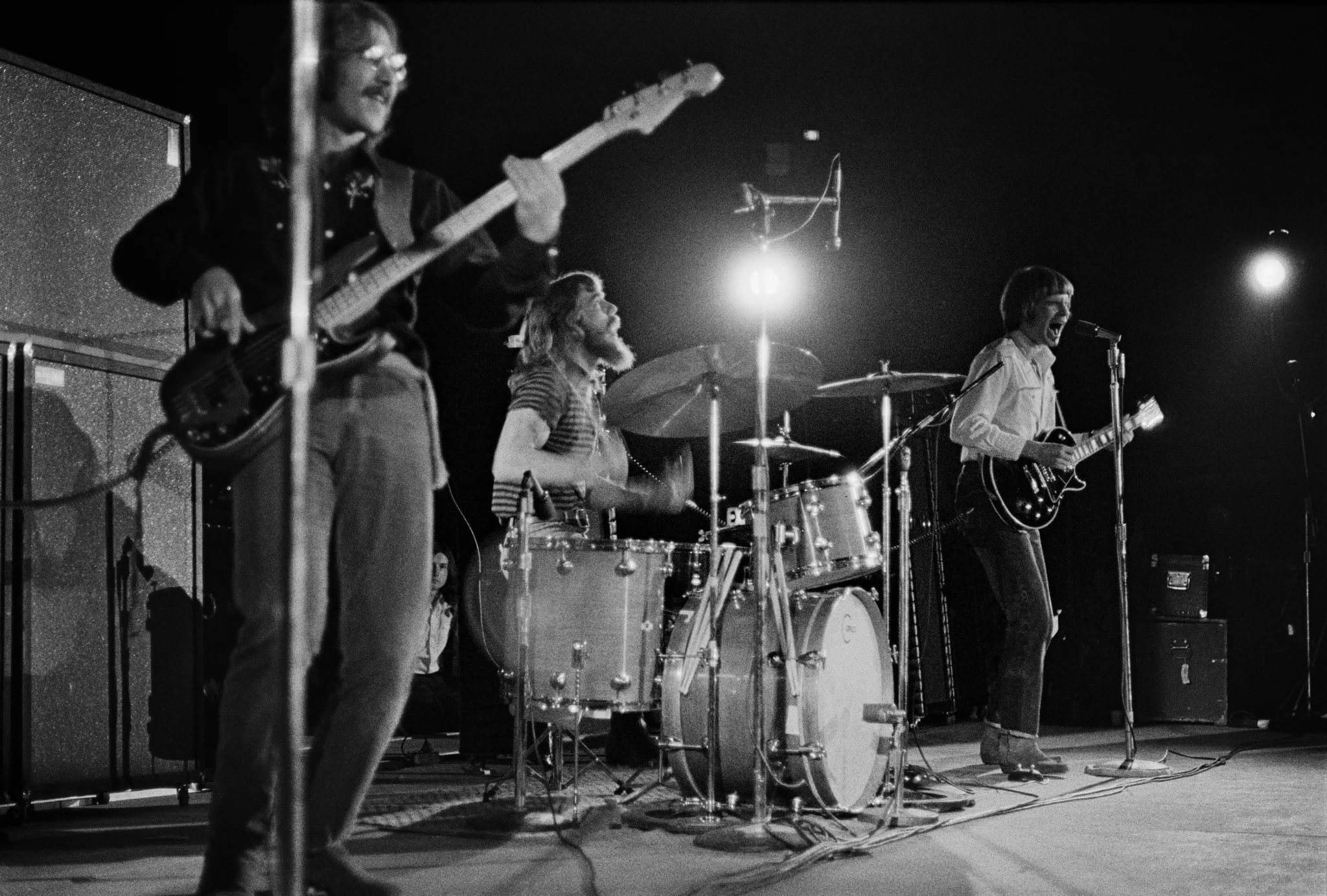
“Call It Pretending” is CCR’s earliest truth-serum: a song about false love that also sounds like a band shedding a false name. It’s the quiet hinge between who they were and who they were about to become.
Before Creedence Clearwater Revival had rivers, rainstorms, and those plainspoken American warnings that would soon echo out of every radio, they had a smaller kind of drama: a 45 rpm record, a label name that still didn’t fit, and a hunger to stop acting like a “local act” and start sounding like a real band with a real future. “Call It Pretending” belongs to that threshold moment. It first appeared in November 1967 as the B-side to “Porterville”, released under their earlier name The Golliwogs on Scorpio 412—a record often noted as their final single under that old moniker.
And if you’re looking for the “chart debut position,” the honest answer is almost poetic: there wasn’t one. This was a promotional release (circulated as “Not For Sale” copies), not a national chart event with a Hot 100 entry and a tidy peak week. Its “arrival” wasn’t measured in rankings; it was measured in intention—in the feeling that something was changing under the surface.
That change was already in the paperwork. Both sides—“Porterville” and “Call It Pretending”—were written by John Fogerty, but credited to his wonderfully strange pseudonym “T. Spicebush Swallowtail.” Even that little disguise feels symbolic now: a songwriter hiding in plain sight, already capable, not yet fully “named.” The recording itself took place at Coast Recorders in San Francisco in October 1967, and it came only weeks after Saul Zaentz purchased Fantasy Records—another sign that the business side of their world was shifting too.
Then came the most telling rewrite of all: the single was reissued in January 1968, and this time it carried the name that would matter—Creedence Clearwater Revival. It’s hard not to feel the quiet electricity in that fact. Imagine it: the same music, the same voices, the same small record—yet the identity on the label finally matches the weight in the sound. In retrospect, “Call It Pretending” isn’t just a B-side; it’s a birth certificate.
Musically, the song sits closer to late-’60s pop-rock than the swampy, hard-striding CCR signature that would soon arrive. That’s part of its charm. You can hear a band still reaching—still trying on shapes—yet already locked into that tight four-man purpose: John Fogerty’s guiding vocal presence, Tom Fogerty’s rhythm ballast, Stu Cook’s steadiness, Doug Clifford’s snap-and-drive pulse.
And the meaning—true to its title—is about emotional dishonesty: a relationship where the words don’t match the heart, where affection is performed instead of lived. I won’t quote lines at length, but the song’s stance is unmistakable: if it’s fake, name it; if it’s a mask, stop calling it love. In a way, that theme gains a second, unspoken layer when you remember the context. A band that had spent years wearing a borrowed name (The Golliwogs) finally refuses the costume. They stop “pretending” and step forward as CCR. That’s an interpretation—yes—but it’s one the history invites.
Time has treated the track kindly. Long after its original 45 rpm life, “Call It Pretending” kept resurfacing like a hidden photograph found in a drawer: it was included in collections and archival releases of the band’s early era, including official projects that revisit the Golliwogs recordings and later reissues that acknowledge it as the B-side of “Porterville.” That afterlife matters, because it confirms what devoted listeners have always felt: this small song is part of the foundation.
So when you play “Call It Pretending” now, don’t expect the thunderclap of “Fortunate Son” or the river-current of “Proud Mary.” Expect something quieter—and, in its own way, more intimate: the sound of a young band standing at the edge of the life they’re about to live, deciding what’s real, what’s false, and what name they’re finally willing to answer to.